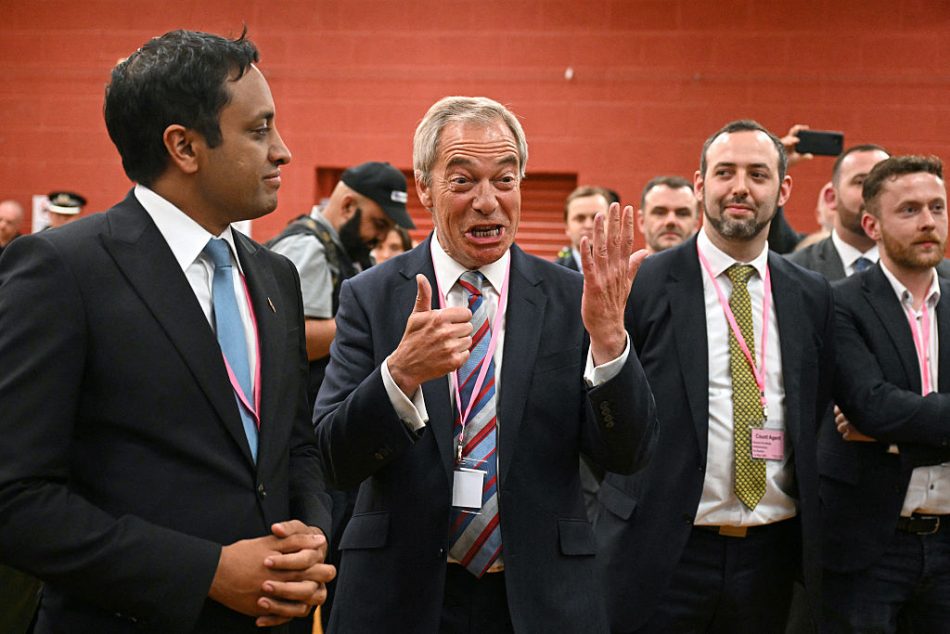Less than 10 per cent of council seats have declared thus far. But there already looks to be a clear early winner from these local elections: Nigel Farage. His party triumphed in the Runcorn and Helsby by-election this morning after a long night of drama. Only four votes separated Labour and Reform in the initial count. Just after 6 a.m, the final result came in: Reform on 12,645 votes and Labour on 12,639, a margin of just six.
That is the closest by-election result since 1892 and is a testament to the effort that both parties invested. Between 350 to 400 Labour and Reform campaigners were out door-knocking yesterday, resulting in a high by-election turnout of 46.3 per cent. Farage’s result suggests he and Zia Yusuf have built a formidable election-winning machine since July. They took on one of Labour’s safest seats, in one of its strongest regions, in a campaign where No. 10 threw the kitchen sink – and won.
Reform's performance in Runcorn is being matched elsewhere across the country. The party came within 400 votes of winning the North Tyneside mayoral contest – a contest where, as one aide puts it, 'we barely spent a penny'. They look to have performed well in the other five mayoral contests too. In the West of England, Aaron Banks finished just 6,000 votes behind Labour. In Greater Lincolnshire, Andrea Jenkyns eased to victory, winning a mammoth 54.5 per cent of the vote compared to the Tories' 20.2 per cent. There is hope for Doncaster, which will declare later today.
Reform have sent an ominous warning for 2029
As well as the mayoralties, Reform have performed very strongly in the Tory shires that Boris Johnson swept at the height of his popularity in May 2021. In Staffordshire, the Conservatives previously represented 55 of the 62 wards: this time Reform look set to win the bulk of the seats in once true-blue territory. If Kemi Badenoch’s party cannot hold this council, then they could well lose the other 18 authorities they currently control. It is an ominous warning for 2029 – and an inauspicious way to mark her sixth-month anniversary as leader today.
As Sir John Curtice told me last week, we are now in the age of five-party politics. In the West of England, Labour held onto the mayoralty on just 25 per cent of the vote. It is a result that is likely to reopen the debate within Keir Starmer's party about whether they should reintroduce the Supplementary Vote system for mayoral contests. Within No. 10 there will be a serious discussion about the need to use the advantages to maximum effect: more than 250 Labour MPs would lose their seats were if the 17.4 per cent swing to Reform in Runcorn was replicated across the country.
The striking thing from this initial set of results is how Reform has built on its performance at last year's general election. In Norfolk, there were two by-elections caused by the resignation of Liz Truss's Labour successor from both the county council and district councillor. In both of those seats, Reform stormed to victory, in a constituency where they finished third last July. The North East looks likely to be an area of potential future growth, given the party's strong performance in the mayoralty there.
Reform running Labour close in its heartlands and routing the Tories in theirs: that looks likely to be the story of this night.
Join us at Coffee House Shots Live: The local elections shake-up on Wednesday 7 May, with special guests Sir Jacob Rees-Mogg and Zia Yusuf. Book your tickets here







Comments